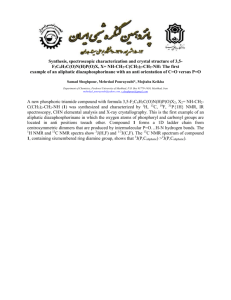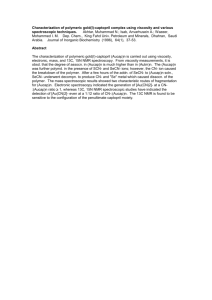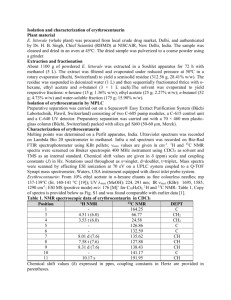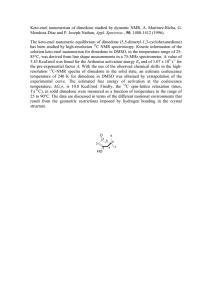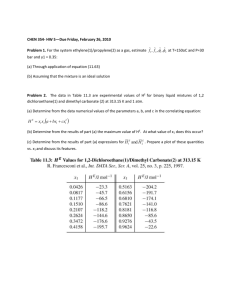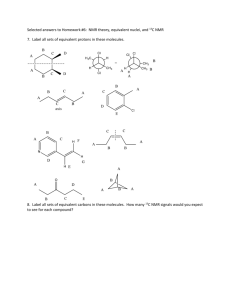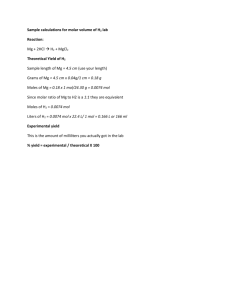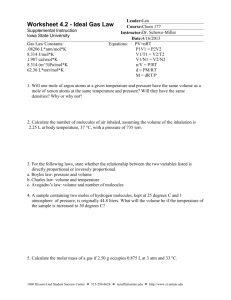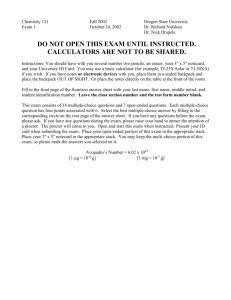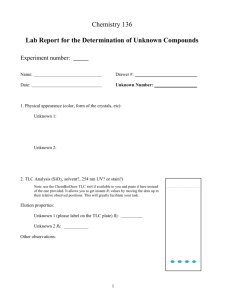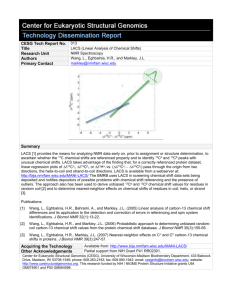Reactions of gold(III) ions with ribonuclease A and methionine
advertisement
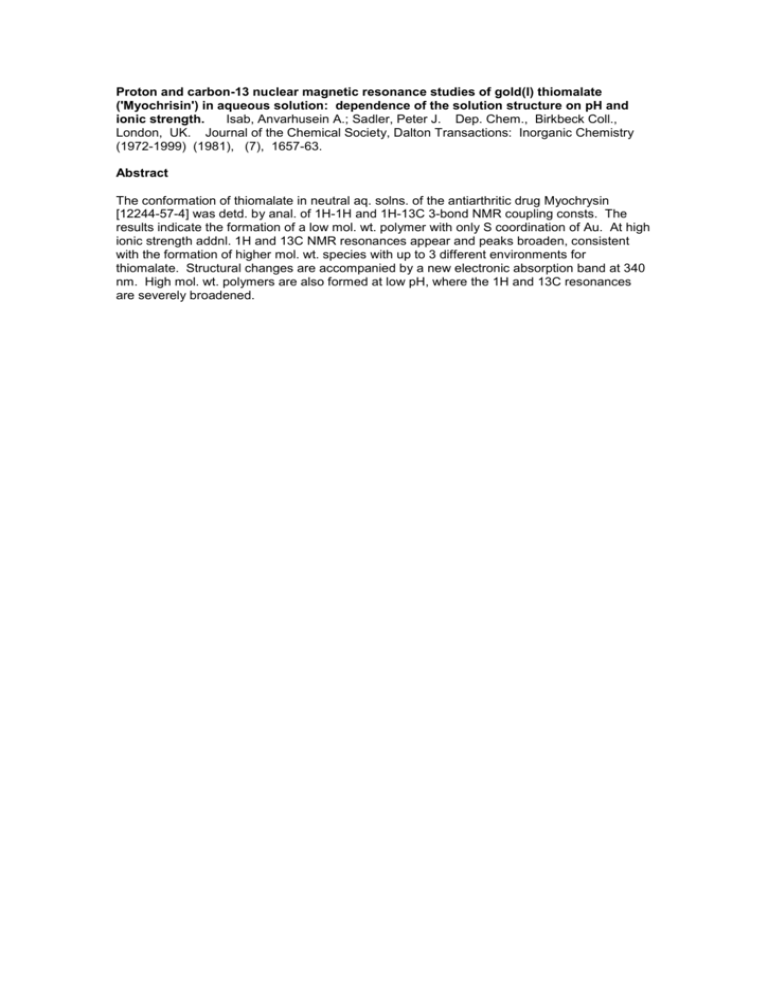
Proton and carbon-13 nuclear magnetic resonance studies of gold(I) thiomalate
('Myochrisin') in aqueous solution: dependence of the solution structure on pH and
ionic strength.
Isab, Anvarhusein A.; Sadler, Peter J. Dep. Chem., Birkbeck Coll.,
London, UK. Journal of the Chemical Society, Dalton Transactions: Inorganic Chemistry
(1972-1999) (1981), (7), 1657-63.
Abstract
The conformation of thiomalate in neutral aq. solns. of the antiarthritic drug Myochrysin
[12244-57-4] was detd. by anal. of 1H-1H and 1H-13C 3-bond NMR coupling consts. The
results indicate the formation of a low mol. wt. polymer with only S coordination of Au. At high
ionic strength addnl. 1H and 13C NMR resonances appear and peaks broaden, consistent
with the formation of higher mol. wt. species with up to 3 different environments for
thiomalate. Structural changes are accompanied by a new electronic absorption band at 340
nm. High mol. wt. polymers are also formed at low pH, where the 1H and 13C resonances
are severely broadened.
